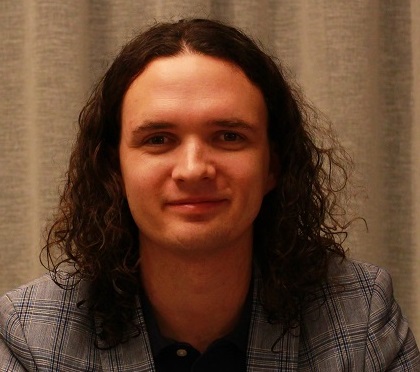
Eschatology, lit. “the study of the last things” – the end of history, and of the present age, dealing with issues of judgment and the destiny of humankind, both collectively and individually.
Everything else makes way more sense when we understand the eschatological scaffolding of almost every, if not all, aspect of Christian theology.
Everything that has an end also has a beginning. And everything that has a beginning has a purpose. It has a goal or a target. To use a technical term, it has a telos. Like running in a race, or driving a car – you want to cross the finish line first, or you want to get somewhere.
The beginning gives direction to the end and the end gives meaning to the beginning.
In Christian theology the very act of creation is eschatological. Because it has a purpose. Why God created the world, the universe, us, is a question that deserves a whole dedicated episode, but in general terms I think it is because God is a relational being. He couldn’t help but create and he created us to be in relationship with him. And so creation itself, from the very beginning, has a telos, it has a goal and purpose.
Anything that has a beginning has an end, and so everything that has a beginning is eschatological.
But it’s not just about the end, it’s also about everything leading to that end.
To live as a Christian is to live an eschatological life. It is to commit to a certain way of living which at times may be at odds with how the rest of the world thinks you should live. Sometimes it demands sacrifices, it demands effort and dedication. It is one that looks to the future, to see the goal of all of creation and of God’s promises, and gives that extra significance to what we do in the present. But that focus on the future gives us a sense of hope.
For Christians, the promise of resurrection and of eternity in a renewed and redeemed creation gives hope to the present.
Eschatology is at its core all about hope. And it pervades all aspects of Christian theology, because theology is rooted upon the hope that we have in Jesus Christ. That is the Gospel Message: that Jesus has redeemed us, and he will redeem us.
So in light of all of that, I like to define eschatology quite simply as “the fulfilment of divine promise.” When God makes a promise, that’s eschatology. When God fulfils a promise, that’s eschatology.
“Realized Eschatology” = all of God’s promises have already been fulfilled, in the events of and surrounding the life, death, and resurrection of Jesus. (e.g. Col. 1.13; John 5.24-25)
Yet there is still death, pain, suffering, and injustice. And the bible nevertheless talks about things to come, like the return of Jesus, of our own resurrection, and of the new creation. So we exist in this tension, which some have called the already-not yet, that is the promises of God are already here or perhaps in part, but still also to come. We might call this an “Inaugurated Eschatology” that holds this tension together. Others prefer a both-and tension rather than already-not yet, which we might call an “Eternalized Eschatology”.
Anything that has a beginning has a goal, that goal gives purpose and dignity to the things we do now, and that goal gives us hope. Those promises have been fulfilled and they will be fulfilled, and we live in this present age where death is defeated but we yet await our future resurrection.
My bro, David, wrote the theme music for Isms & Schisms. Check him out here.
I’d love to hear your thoughts!


Leave a comment